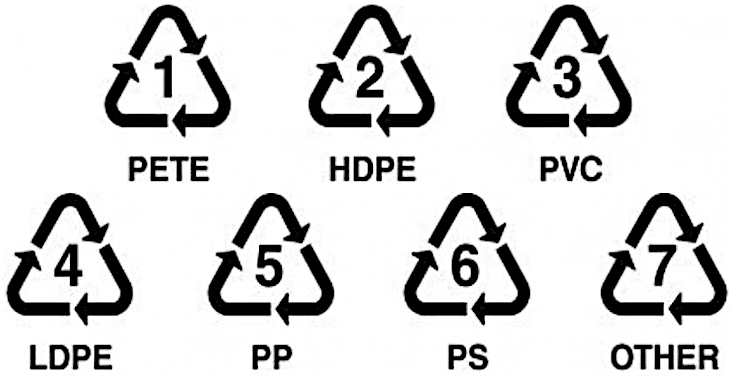Types of Plastic: Know Your Waste To Be A Pro-Recycler

Types of Plastic: Know Your Waste To Be A Pro-Recycler
Undeniably, plastic has changed the world, and in many ways, it has done enormous good for us: revolutionising healthcare, saving lives with helmets, incubators and equipment for clean water; but the conveniences of plastic have led to a throw-away culture.
I thought if I follow the 3 Rs: Reduce, Reuse, and Recycle when dealing with plastics, I’ll not be contributing to the 8 million tons of plastic waste that escapes into the oceans each year. Turns out recycling is not the magic bullet many make it out to be. Many of the plastics that are “recycled” still end up in the landfill. One of the biggest reasons for this is recycling contamination, where non-recyclable and incompatible types of materials get mixed in together.
But fear not, knowing the types of plastic and their uses will enable you to take back control and reduce your recycling contamination.
Know your types of plastic

While there are many types of plastic that can be recycled, few have easy ways of accessing those recycling services. Here is a summary of what you can expect for each plastic type:
- Polyethylene terephthalate (PETE or PET): Recyclable by council roadside pickups. One of the most widely used plastics in the world, used for fizzy drinks, water bottles, salad trays, and more.
- High-density polyethylene (HDPE): Recyclable by council roadside pickups. Typically used for milk bottles, bleach, detergents and some shampoo bottles.
- Polyvinyl chloride (PVC): Can be recycled but is rarely recycled. This so called “poison plastic” is bad for our health and difficult to recycle. Typical uses are: carpet backing, pipes, window frames, and toys.
- Low density polyethylene (LDPE): Recyclable usually through supermarkets bin liners, packaging film, squeezable bottles and carrier bags.
- Polypropylene (PP): Recyclable but not widely done. Before recycling, this is one that should be checked that it is actually accepted. It is widely used but not widely recycled! Typical uses are: food packaging eg margarine tubs, microwaveable meal trays, yogurt pots.
- Polystyrene (PS): Not recyclable. Typical uses are: packaging for food and electronic goods and toys.
- Other: Not yet recyclable but can be repurposed to park benches.
What can you do with this information?
It might feel daunting and possibly better not to recycle at all, rather than ruin someone else’s efforts. But do not be disheartened, now you are armed with this extra knowledge you can become a master recycler.
Remember that the roadside council pickups are probably looking for plastic with numbers 1 or 2; and plastic number 4 is probably recycled at your local supermarket. For the rest seek out specialised recycling services. As well as helping you recycle better, knowing the symbols for plastic will enable you to avoid the types that can’t be recycled.
Keep looking for the little ways to reduce and reuse your plastics before recycling; everything helps and small steps are easier to maintain than massive changes.